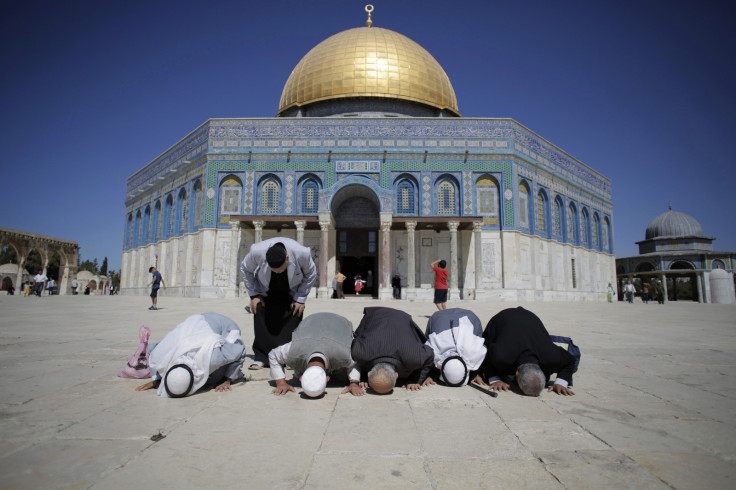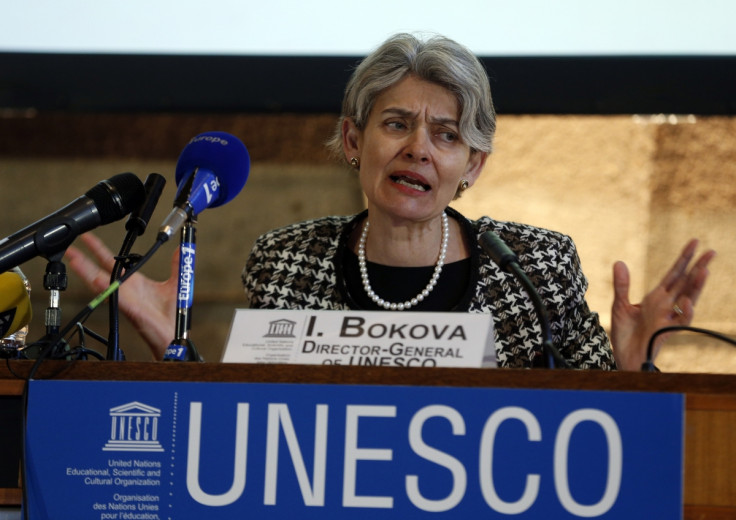Unesco chief Irina Bokova aims to tackle controversery over 'Islamification' of disputed Temple Mount
Bokova tells IBTimes UK that trust between Muslim and Jewish communities in the city must to be restored.

Irina Bokova, the Director-General of Unesco, has told IBTimes UK she wants to build trust among Israelis and Palestinians regarding a heated dispute over a resolution on reclassifying a flashpoint Jerusalem holy site.
Last week, Unesco's World Heritage Committee meeting in Istanbul delayed a vote on the Palestinian-Jordanian draft document to refer to Temple Mount, Judaism's holiest site, by its Muslim name of al-Haram al-Sharif.

Israel has accused Unesco of seeking to "rewrite history" and that the resolution is in effect saying that the site is holy only for Muslims, thus denying Jewish ties to Temple Mount that go back thousands of years.
Adding to tensions was a document distributed by European Union representatives that Israel insists would accept that the al-Aqsa complex is holy to Muslims only.
Israel's foreign ministry spokesman Emmanuel Nahshon said in a tweet that "Denying Jewish Jerusalem" would be akin "to denying the roots of Christian Europe".
But Bokova, who is one of the favourites to take over as UN secretary-general, has called for respect and dialogue regarding that part of Jerusalem, and that the Jewish and Christian connection to the site should not be denied.
She said: "This is where we need to try to build trust among the Israelis and the Palestinians by invoking the meaning of Jerusalem and the need to protect its status as the birthplace of three monotheistic religions. We have to remind ourselves about the importance of such dramatic sites in the world which is the old part of Jerusalem.
"By doing this, I am not just supporting the underlying idea of having it on the World Heritage list as a sacred place, but also I am also trying to build trust among different communities," she told IBTimes UK.
The compound in east Jerusalem, which Israel took in the 1967 Six-Day War and later annexed in a move not recognised internationally, has long been a flashpoint between Israelis and Palestinians.
A similar resolution in April 2016 was adopted by Unesco to refer in documents to Israel as the "occupying power" and describing the Temple Mount as al-Aqsa Mosque. It also referred to the Western Wall Plaza in quotation marks, after using the Arabic Al-Buraq Plaza.
Israeli Prime Minister Benjamin Netanyahu described that resolution as "yet another absurd UN decision".
"Unesco ignores the unique historic connection of Judaism to the Temple Mount, where the two temples stood for a thousand years and to which every Jew in the world has prayed for thousands of years," he said in April, according to the Jewish Telegraph.
Although Israel claimed success in delaying the vote this month, the director of UN activities at the Palestinian Ministry of Foreign Affairs, Omar Awadallah, told Al-Monitor that Unesco had postponed voting on all resolutions due to a security instability in Turkey following the coup attempt.
Unesco is expected to revisit the issue when it meets in October.
© Copyright IBTimes 2025. All rights reserved.






















